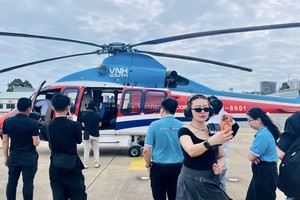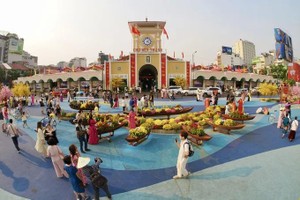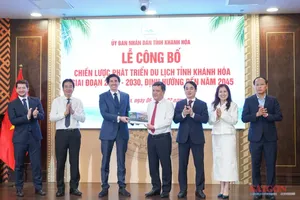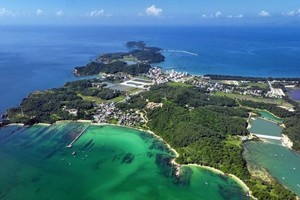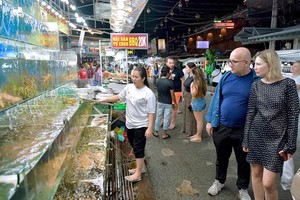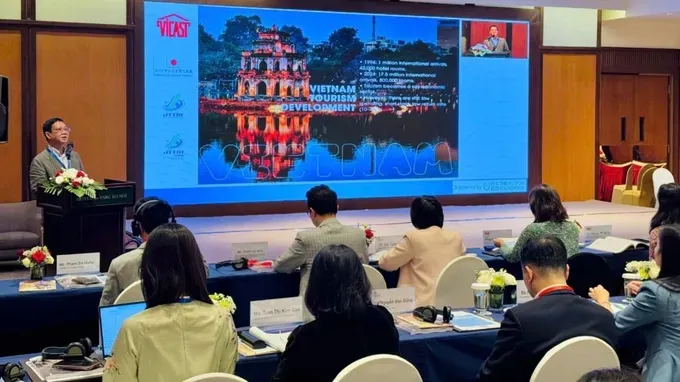
The Vietnam Institute of Culture, Arts, Sports and Tourism (VICAS) and the Japan Transport and Tourism Research Institute (JTTRI) jointly hosted the third Vietnam–Japan International Conference yesterday in Hanoi under the theme “Creative Tourism – Developing Sustainable Destinations”.
The event brought together policymakers, researchers, tourism experts, and representatives from cultural organizations, reflecting the growing importance of creative tourism in shaping sustainable development strategies for both countries.
In her opening remarks, Associate Professor Nguyen Thi Thu Phuong, Director of VICAS, underscored that creative tourism has become a global trend in which travelers are no longer passive observers but active co-creators of experiences alongside local communities.
She emphasized that Vietnam possesses unique cultural resources from traditional crafts and performing arts to culinary heritage and community festivals that can serve as the foundation for building a distinctive tourism brand rooted in cultural identity and sustainability.
According to her, creative tourism not only enhances visitor satisfaction but also empowers local communities by generating income and preserving cultural traditions.
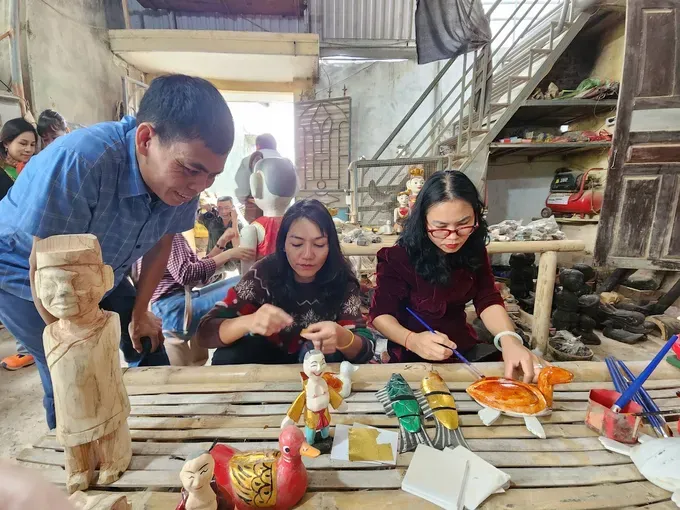
Assessing bilateral cooperation, Director General Nguyen Trung Khanh of the Vietnam National Authority of Tourism highlighted that Japan has consistently ranked among Vietnam’s top ten international visitor markets. He noted that Japanese travelers are drawn to Vietnam’s diverse cultural landscapes, while Vietnam remains a favored destination for Vietnamese tourists seeking Japan’s blend of tradition and modernity. This mutual interest has created a strong basis for expanding tourism exchanges and deepening collaboration.
In addition, Vietnam–Japan tourism cooperation has broadened into multiple areas such as joint research projects, human resource development programs, product innovation, application of digital technologies, and destination promotion. These initiatives are considered essential pillars for sustainable tourism growth in the modern era, ensuring that both countries can adapt to changing traveler expectations while maintaining cultural authenticity.
On his part, JTTRI President Okuda Tetsuya expressed admiration for Vietnam’s efforts in developing tourism models that integrate culture, arts, crafts, and cuisine. He stressed that such approaches enrich visitor experiences by offering immersive participation, while simultaneously creating livelihoods for local artisans, chefs, and performers. He also emphasized that Japan is eager to share its own experiences in creative tourism, particularly in areas such as community-based tourism, heritage preservation, and the use of advanced technologies to enhance visitor engagement.
The conference served not only as a platform for exchanging ideas but also as a milestone in institutional cooperation. At the conclusion of the event, both sides signed a memorandum of understanding (MoU) to strengthen collaboration in research, expert exchange, and sharing best practices in developing creative tourism. The MoU is expected to pave the way for long-term partnerships, enabling Vietnam and Japan to jointly design innovative tourism products, train skilled professionals, and promote destinations that embody sustainability and creativity.
By fostering creative tourism, Vietnam and Japan aim to move beyond traditional sightseeing toward experiences that allow travelers to learn, participate, and contribute. This shift reflects a broader vision of tourism as a driver of cultural preservation, community empowerment, and sustainable economic growth. The conference reaffirmed that cooperation between the two countries will continue to evolve, positioning Vietnam and Japan as leaders in the global movement toward creative and sustainable tourism.





